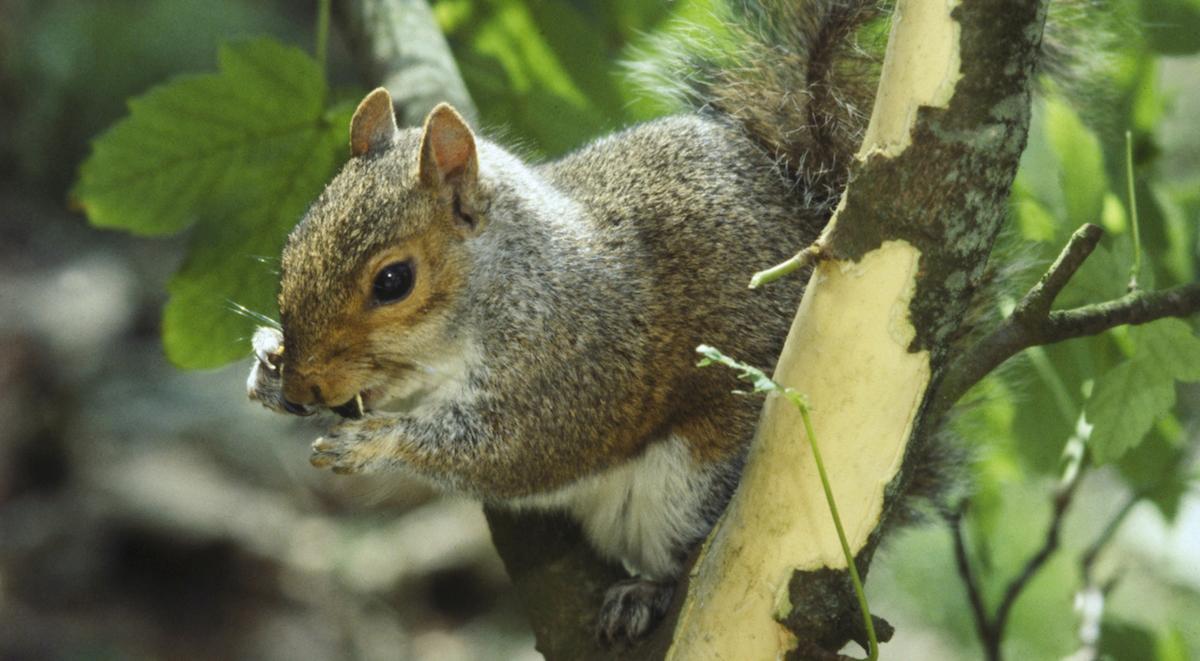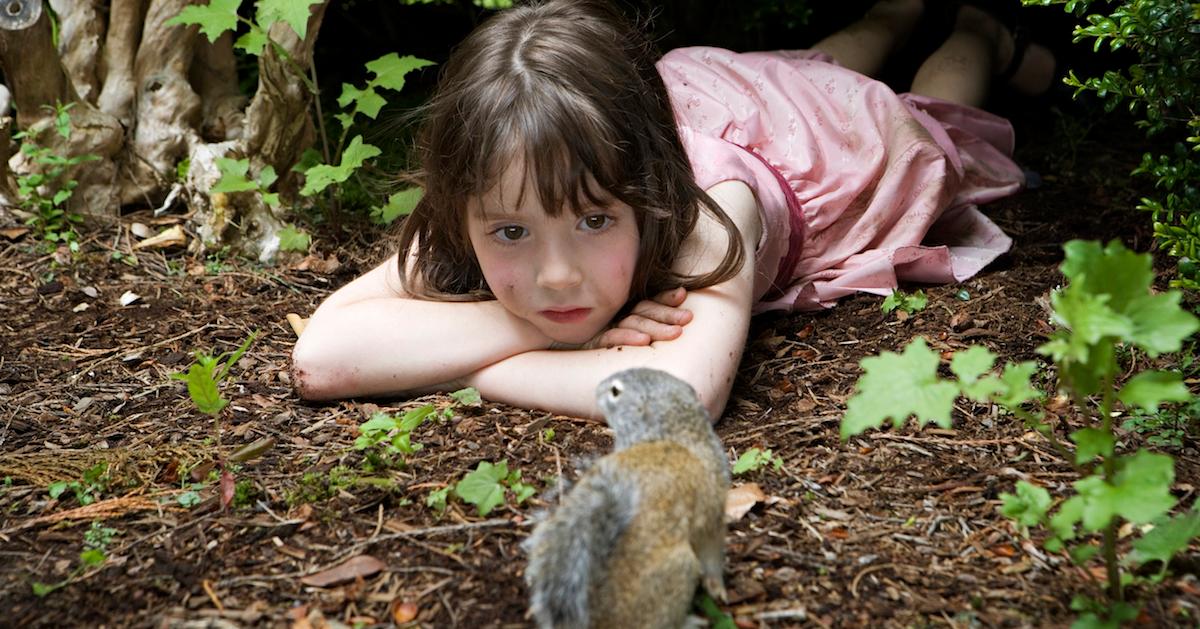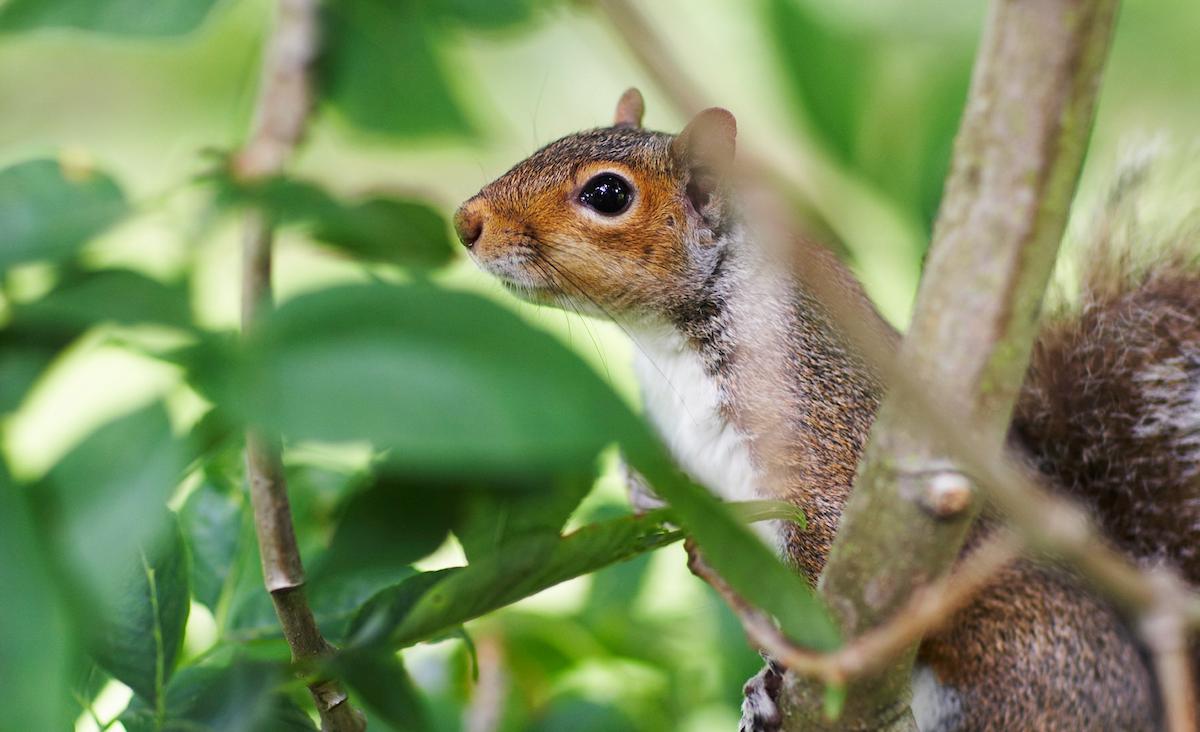6 Effective and Natural Tips for Keeping Squirrels Out of the Garden
Published June 10 2021, 3:01 p.m. ET

With all their acrobatic hijinks, cute features, and almost humanlike behaviors, squirrels certainly make for an entertaining backyard visitors. Gardeners might beg to differ with all of that, however. Squirrels are known to dig up garden beds looking for bulbs, eat all the best fruit off the vine, and nibble on leaves and flowers — so it;s no wonder that so many gardeners hate them. So how does a gardener keep squirrels out of their garden?

How do you know a squirrel is in your garden?
As a general rule, your suburban, garden-variety squirrel is not going to be particularly wary of humans. But if you are having garden troubles and you don’t seem to see any signs of squirrelly interlopers, then Bonnie Plants recommends looking for a few telltale signs.
First, look for golf-ball size or smaller holes in freshly planted garden beds. Squirrels are opportunists who love to dig up seeds, especially if the earth is recently tilled and easily accessible. If you have fruit plants, berries, apples, or tomatoes you may see bite marks on some or all of your fruits. Squirrels are renowned for taking a bite off everyone’s plate but finishing none of it. They also enjoy beans, cucumbers, squash, and eggplants.
Squirrels are unabashed nibblers and their flat, ever-growing teeth are fond of chewing on herbs, flowers, seedings, and any other non-toxic plant you might happen to have growing in your yard. If you’re noticing any or all of these things, then all signs point to squirrel.
How to keep squirrels out of the garden:

According to the Old Farmer’s Almanac, the best squirrel repellents aren’t chemicals or synthetic compounds, but methods and concoctions that utilize elements that repel squirrels naturally. Here are a few suggestions:
Squirrel fluids
Some say that sprinkling squirrel urine or dried squirrel blood — both commercially available, we might add — around trees, shrubs, and delicate garden plants, is the best way to ward off the irritating little rodents. The blood bit is a little gruesome, we’ll admit, but the method seems to work for some people.
Natural predators
Squirrels are prey animals, and dogs, cats, owls, hawks, and other such animals know it. The squirrels are smart enough to know this as well, and they tend to steer clear of homes near raptor nests or with outside cats. According to Bonnie Plants, dogs can even be trained to chase squirrels when they are out in the yard. Pee from predators like wolves or other predators is also a good repellent and it can be bought online.
Spicy solutions
My dad swears by this method for his apple trees. Sprinkling some hot pepper flakes, cayenne powder, or even garlic powder around your plants might keep the smaller blooms safe long enough for them to begin to flower and bud. Squirrels absolutely detest the spicyness of cayenne, according to the the Old Farmer’s Almanac, so they’ll keep away until the rain comes.

Sour flowers
Farmer’s Almanac recommends planting nasturtiums, marigolds, and mustard plants around the perimeter of your veggie garden. All of these plants posses a strong enough aroma that the squirrels’ sensitive sniffers will be all too happy to avoid.
Squirrel shields
If you have the space for it, you could always cover your seedings and flowering fruits and veggies so that the squirrels can’t get in. Fencing, chicken wire, and row covers can all be used to construct a dual-purpose greenhouse/squirrel shield. This usually stops being practical once the plants have matured completely.
Relocated stores
If you’re lucky enough to locate your squirrels’ stores of nuts, berries, and other acorns, good for you. However, the best way to keep them away from your home is to gather the nuts and such yourself, and put them somewhere these food sources can be relocated to an area where squirrels are welcome, such as a local park — preferably, one that’s very far away.